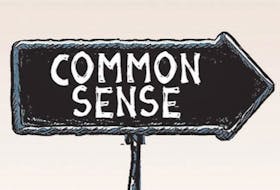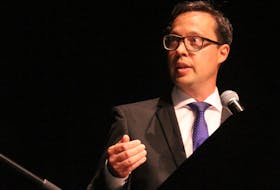You can’t help but feel sympathy these days for lawyers and judges. They regularly worry aloud about “bringing the administration of justice into disrepute,” and yet much of what happens in courtrooms does exactly that.

They can’t escape it. As any idealist can tell you, courtrooms are concerned with the law, not with justice.
To be concise, the robed learned friends and their honours should refer to “bringing the enforcement of law into disrepute.” Justice left the barn years ago.
For instance, it apparently shocked some people that the courts recently ruled the Catholic Church cannot be held liable for the sexual abuse of boys in the Mount Cashel Orphanage by several members of the Congregation of Irish Christian Brothers in the 1940s to 1960s.
You could see this coming if you followed the case closely. Why? See above, re courts dealing with the law, not with justice.
To a layperson, it seems preposterous to conclude that members of the Christian Brothers were not subservient and answerable to the Catholic Church hierarchy. After all, they weren’t Lutheran or Pentecostal or whatnot. In Newfoundland, at least, the smart-aleck phrase, “Is the Pope Catholic?” can be joined by, “Are the Christian Brothers Catholic?”
But the law is not intimidated by the prospect of preposterousness, which is why the Church’s lawyers could stand up in court and declare the Catholic Church hierarchy had no power or control over the Christian Brothers and thus could not be held liable for their ungodly actions.
Amid the horrible and tragic stories that emerged during the recent trial, a jarring phrase stood out every time it was mentioned: the Episcopal Corporation of St. John’s.
Essentially, the abused men lost the case because the Church — the Episcopal Corporation of St. John’s — and the Congregation of Christian Brothers are separate legal entities.
The divine right of kings is long gone, but the divine right of churches to not be taxed is still with us.
This likely came as news even to many of the faithful. After all, the One True Church puts emphasis on “one.” Nobody recalls readings in catechism class in which the faithful are instructed to “go forth and incorporate.”
Catholics and non-Catholics alike can be forgiven for suspecting some sort of subterfuge on the part of servants of the Holy See. The Church Inc. claims legal status when it suits its interests, but then brazenly and hypocritically claims to be beyond the laws of man when it is advantageous to do so. I refer, of course, to the Church’s historical “right” to not be taxed by the state.
The divine right of kings is long gone, but the divine right of churches to not be taxed is still with us.
Originally, the Church was not forced to pay taxes because, back in the day, cardinals were more powerful than kings. The explanation given to the illiterate masses was that the Church was doing God’s work on Earth, and therefore was not beholden to any king other than the King of Kings. Contrary to widely held belief, it has nothing to do with the fine principle of separation of church and state, which is specific to the U.S. government not dictating religious beliefs to its citizenry.
I digress, but only slightly. This is a matter of huge hypocrisy. The Episcopal Corporation of St. John’s enjoys tax-free status because of this longstanding precedent, yet cites its incorporated status when a civil lawsuit, rather than a tax collector, comes knocking.
Devout adherents of the faith will point out that the diocese of St. John’s is incorporated as a non-profit charitable organization, which justifies it being tax-free.
The obvious rebuttal is that plenty of people do good in this world, but nevertheless pay taxes.
We are almost two decades into the 21st century. The rationale for churches not paying taxes is outdated. The despicable manoeuvring of the Episcopal Corp. of St John’s is reason enough to end it, right here and right now.
Brian Jones is a desk editor at The Telegram. He can be reached at brian.jones@thetelegram.com.










